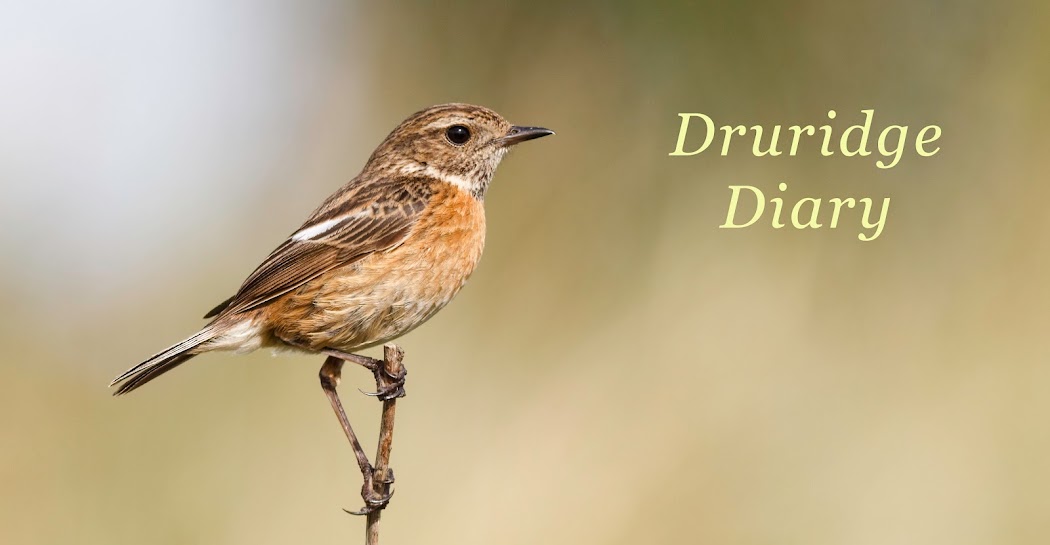Why don't we get weekends like this in September?
It took us until after 3pm to get down to Druridge on Saturday, the wet start delaying our departure. Janet joined me and we had a wander around the patch looking for migrants - we didn't see many migrant birds but we did see lots of migrant hoverflies. All of a sudden, the cow parsley and buttercups were lifting with hovers - a huge arrival. Spurn reported thousands and an observer on a North Sea oil rig had hundreds on his rig.
I'll do a separate hover blog later in the week when they've been identified.
It was a damp fog on Saturday and the light was awful so I left the SLR behind, which I regret as the there were so many hovers as well as this nice fresh ringlet butterfly which sat out well.
 |
| Ringlet |
On the Budge fields, an little-ringed plover and a ringed-plover were on the mud and a whimbrel flew over with curlew - that was the highlights.
The avocet pair on the Budge fields still have their three chicks - a new breeding record for the reserves. It's been a funny year for breeding birds on the patch and I'm not sure why:
Avocet - new breeding record for the reserves
Bullfinch - female with a brood patch caught last week and a pair present today - my first records outside of the October-February period other than a single August record
Coal Tit - normally a autumn and winter species only. I watched a pair taking food into the plantation today - my first breeding record on the reserves
Lesser whitethroat - used to breed on the wider patch around High Chibburn but never in the bushes on the reserve - female caught with brood patch
and today a spotted flycatcher fly-catching by the entrance - either a very late migrant or maybe a breeding bird?
This morning I spent five and a half hours on the patch form 7am. I was birding first thing then looking at insects and bugs. I've already mentioned the spotted flycatcher, coal tits and bullfinches. One, maybe two barn owls were hunting and lots of warblers had fledged youths with them including family parties of blackcap, whitethroat (x2) and sedge warbler.
Offshore a flock of 400-500 common scoter was out in the bay, I grilled them for surf scoter without any joy but did turn up at least two drake velvet scoters. Roseate terns were feeding amongst them.
I took the macro lens for a walk along the track to the hides - I only got about half-way, there was so much to see.
 |
| Tree Bumble Bee - Bombus hypnorum |
 | ||
Odynerus spinipes - Shiny Mason Wasp
|
 |
| Early Bumble Bee - Bombus pratorum |
 |
| Common Blue butterfly from above |
 |
| and the underside |
 |
| Blue-tailed damselfly - Ischnura elegans |
 |
| This is Picromerus bidens Spiked Shieldbug (final instar nymph) with a caterpillar for consumption later. I think the caterpillar is that of Autumnal rustic Eugnorisma glareosa |
 |
| Common Scorpion Fly - Panorpa communis |
 |
| An unidentified spider dismantles an unidentified prey item |
 |
| Not sure about this wasp yet. |


No comments:
Post a Comment